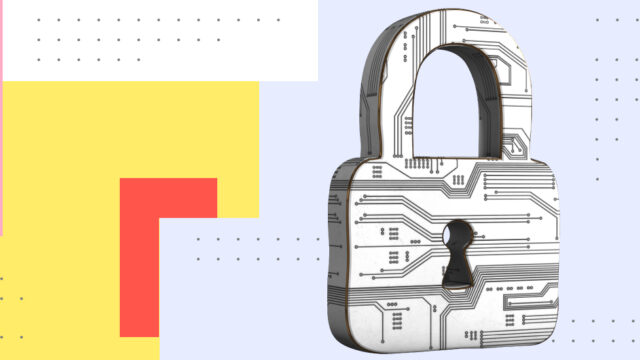
The Importance of Access Control in the Cloud
Learn why cloud access control is crucial to firms’ digital defense strategies.
The landscape of data security is ever-evolving. Increasingly, accountants are looking to the cloud for more efficient financial data management. But with greater access to the cloud comes great responsibility. This responsibility is particularly crucial in the area of access control.
Access control refers to a set of methodologies and technologies that safeguard digital resources within an organization. These elements could include authentication protocols, permissions and data encryption. Users must take steps to validate their identities and thereby maintain the integrity of sensitive information in the cloud environment.
Cloud access control is fundamental to accounting firms’ digital defense strategies. Let’s explore this vital domain and see how it affects the way data is secured in accounting firms and the larger financial industry.
Navigating employee access in cloud systems
Organizations typically use a tiered approach to granting access to cloud systems. The process commences with the input of passwords. From there, it might proceed to SMS code entry for multi-factor authentication.
At its core, access control must be scalable and constantly reviewed. This necessity is due to the dynamic nature of roles within an accounting firm. Promotions, layoffs and new hires need access updates to reflect their current responsibilities.
Implications of poor access control
Uncontrolled access to sensitive financial records can result in:
- Unauthorized viewing, deleting or altering of financial data, which can lead to skewed financial statements and decisions
- Exposure of client information, eroding trust and potentially resulting in regulatory penalties
- Theft of intellectual property within accounting firms, compromising competitive advantage
These consequences encapsulate the chilling fallout of unchecked digital architectures. However, they also hint at a beacon of hope. Proactive, sophisticated and layered access controls can help prevent these crises and strengthen business operations’ protocols.
Effective access control measures in the cloud
Preventing unauthorized access and ensuring data security in the cloud requires vigorous, multi-pronged measures. Several key features work together to protect sensitive data in effective cloud access control:
Robust authentication protocols
This involves implementing multi-factor authentication. The system grants access only after users successfully present two or more pieces of evidence (factors). This step could include providing something the user knows, such as a password. It could be a device that the user implements, known as a security token. Finally, it could entail biometric verification, such as an eye scan or facial recognition.
Least privilege access
This access ensures users have the least amount of access required to perform their jobs. This precaution limits the potential damage from accidental or deliberate misuse of privileges.
Regular audits and reviews
To maintain a secure cloud environment, you must audit access controls and review user privileges. These routine actions help identify and rectify discrepancies or unnecessary access rights.
Advanced encryption
Data encryption transforms readable data into an unreadable format. Users can only reverse this encryption with the correct decryption key. Even if unauthorized users intercept your data, it remains incomprehensible and useless.
Adding these features to your firm’s cloud access control strategy strengthens its defenses and ensures the integrity and privacy of sensitive financial data.
Caseware Cloud’s comprehensive access control strategy
In addition to these security measures, Caseware Cloud utilizes the following cutting-edge safety protocols. These steps further safeguard your firm’s and your clients’ data in the cloud.
- Granular access controls: Caseware Cloud gives you detailed control over what actions and data each user or group can access within each role. This effort prevents unauthorized changes or leaks.
- Data encryption at rest and in transit: Caseware Cloud encrypts all data at rest within its secure servers and during transit to and from the cloud.
- Real-time monitoring: Caseware Cloud employs real-time monitoring and AI-powered anomaly detection. These tools detect suspicious activity or potential breaches and trigger swift action.
- Disaster recovery: In the event of a disaster, Caseware Cloud ensures your data is continuously backed up and quickly recovered. This service includes regular backups, redundant storage and geographically diverse data centers, guaranteeing your data is always available when needed.
Caseware Cloud weaves these elements into its access control strategy. This thorough, layered approach ensures that access controls are not just about erecting barriers. They also entail making a secure, fast and functional environment for all legitimate users.
Secure your firm’s financials in the cloud
Security threats are constantly changing. Take the first step toward securing your firm’s financials in the cloud by exploring Caseware Cloud today.








